Should young commuters get a metro pass?
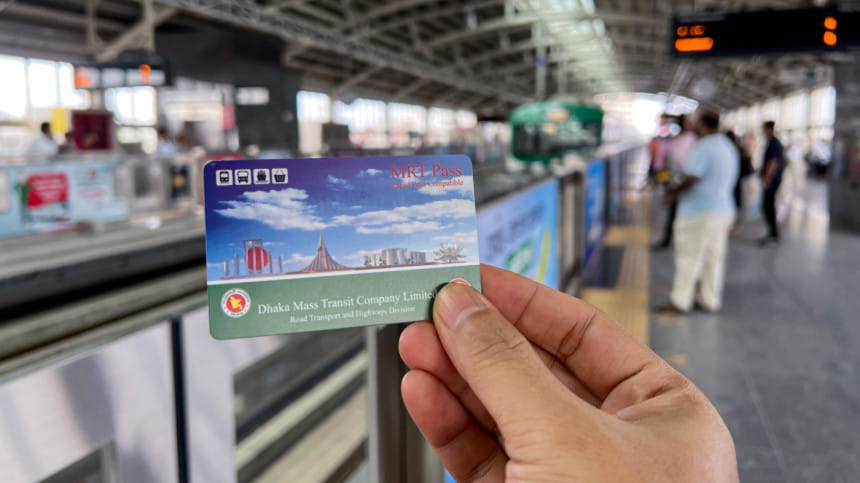
The country's first-ever overhead metro line, MRT line 6, was opened to the public in December 2022 and all stations became operational from December 2023. The line spans 21 kilometers and has 16 stations. The public was jubilant at the inauguration and soon MRT-6 was hauling thousands of people every day across this north-south corridor of Dhaka.
The superior speed and service of the metro put the old and worn-out bus services running along this route in a passenger crisis. People were choosing to take the metro even if they had to walk a certain distance from a station to reach their destination. Perhaps the company operating the metro lines, the Dhaka Mass Transit Company Limited (DMTCL) expected popular demand. But they couldn't have anticipated the pressure MRT-6 was about to face.
After the metro became fully functional, the floodgates opened. People started to cram onto the trains during rush hour. But to get on the train you first need a ticket. The way to get a ticket is the same for all stations. There is a manned counter and about two or three automated machines. Yet both manned counters and automated machines are inundated, with lines twisting and turning three or four times over. The machines being out of service is not uncommon. People are left waiting for hours on end. The frustration of passengers in key stations of Motijheel, Secretariat, Mirpur-10, and Uttara North which face the heaviest congestion is palpable.
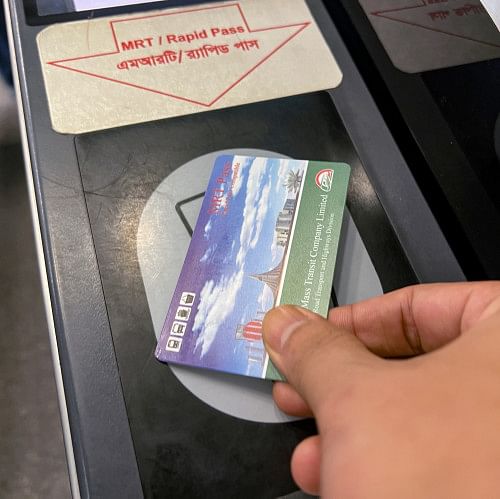
Saima, a student of Dhaka University (DU) shared her experience saying, "When the metro was new, I used the single-use tickets a couple of times. The wait time wasn't so long. However after the DU station opened, the wait time gradually increased. One time it took me one and a half hours to get a ticket from Uttara North Station. I had a friend with me. So, we both stood in different lines. I stood in line for the automatic machines and my friend stood in line for the manned counter. The mental math required was so stressful. My friend made it to the counter first and bought the tickets for us. We missed two lectures that day. From then on, I always suffered from anxiety about using the metro. I used to go to the station with time in hand to wait in line to get a one-time-use ticket. Then I got the Rapid Pass and it has made my life so much easier. I don't have to stand in line anymore nor do I have to suffer from the anxiety that I will miss class. I put some money into my card and just forget about it for the rest of the week."
Another University student Shimanto* said, "I take the 7.10 AM or 7.20 AM train to get to my morning classes. These trips are only accessible for MRT pass holders. Besides, during exam season, I don't have to worry if I'll get to reach the exam hall in time or not which is a tremendous help in exam season. After classes all day, I used to stand in line at the overcrowded Motijheel station for 20-30 minutes to get a ticket. With the pass, I zoom right in"
According to a statement given to The Dhaka Tribune by MAN Siddique, the Managing Director of DMTCL, "The Metro now carries some 250 thousand passengers every day, 52 percent of them use personal passes and the remaining 48 percent use one-time tickets."
The MRT pass and Rapid Pass are the two reusable personal passes on offer for passengers. The cards themselves cost BDT 200. But the MRT pass retails for BDT 500 and the Rapid Pass for BDT 400. The passengers can use the remaining balance to ride the metro. The MRT pass is issued by DMTCL themselves and the Rapid pass is sold by Dutch Bangla Bank. Although actual paper money has to be loaded into both and mobile banking services have not been initiated yet, the passes have become very popular among students.
Abeer, a student who uses the metro almost every day said, "Attending classes at Mugda Medical College from Uttara was a challenge. The metro rail was a blessing for me, allowing me to bypass the congestion on the roads. But without the MRT pass, even the metro became a source of frustration. Long queues at ticket counters and vending machines were nearly unbearable. My pass is a lifesaver. It saves me a significant amount of time on a daily basis. Many people prefer single-use passes as the MRT pass has an issuing fee. But this is one of the best investments I've made. I can use it for getting BRTC bus tickets as well. And it saves me 10 percent on every trip. I can't even put a price tag on the time it saves me."
When asked if the metro pass substantially changed his metro experience, Prottyush*, a university student said, "It seems to me the MRT pass is rather a necessity than a convenience for daily commuters using the Dhaka Metro. At this point, I can't imagine using the metro without it. One of the drawbacks of the ticketing system was the long wait time to get a single-use ticket. This would basically waste the same amount of time if I took the bus."
Because of the hassle-free experience and peace of mind it offers, metro passes have become essential to commuters, especially students. Access to early and late trains enables students to attend their classes on time and the 10 percent discount adds up for students on a budget. The adoption rate should go up if new features are added and the current features are advertised more by DMTCL and Dutch Bangla Bank. The addition of mobile banking services would make these cards truly cashless. As other metro lines open up in the future and the congestion expected to increase further, personal passes like MRT pass and Rapid pass are only set to grow more popular.
*Names have been changed upon request.
Mehrab Jamee is an activist at Sandhani, a student of Mugda Medical College, and writes to keep himself sane. Reach him at [email protected]

 For all latest news, follow The Daily Star's Google News channel.
For all latest news, follow The Daily Star's Google News channel. 


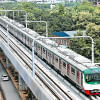

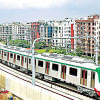
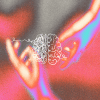


Comments